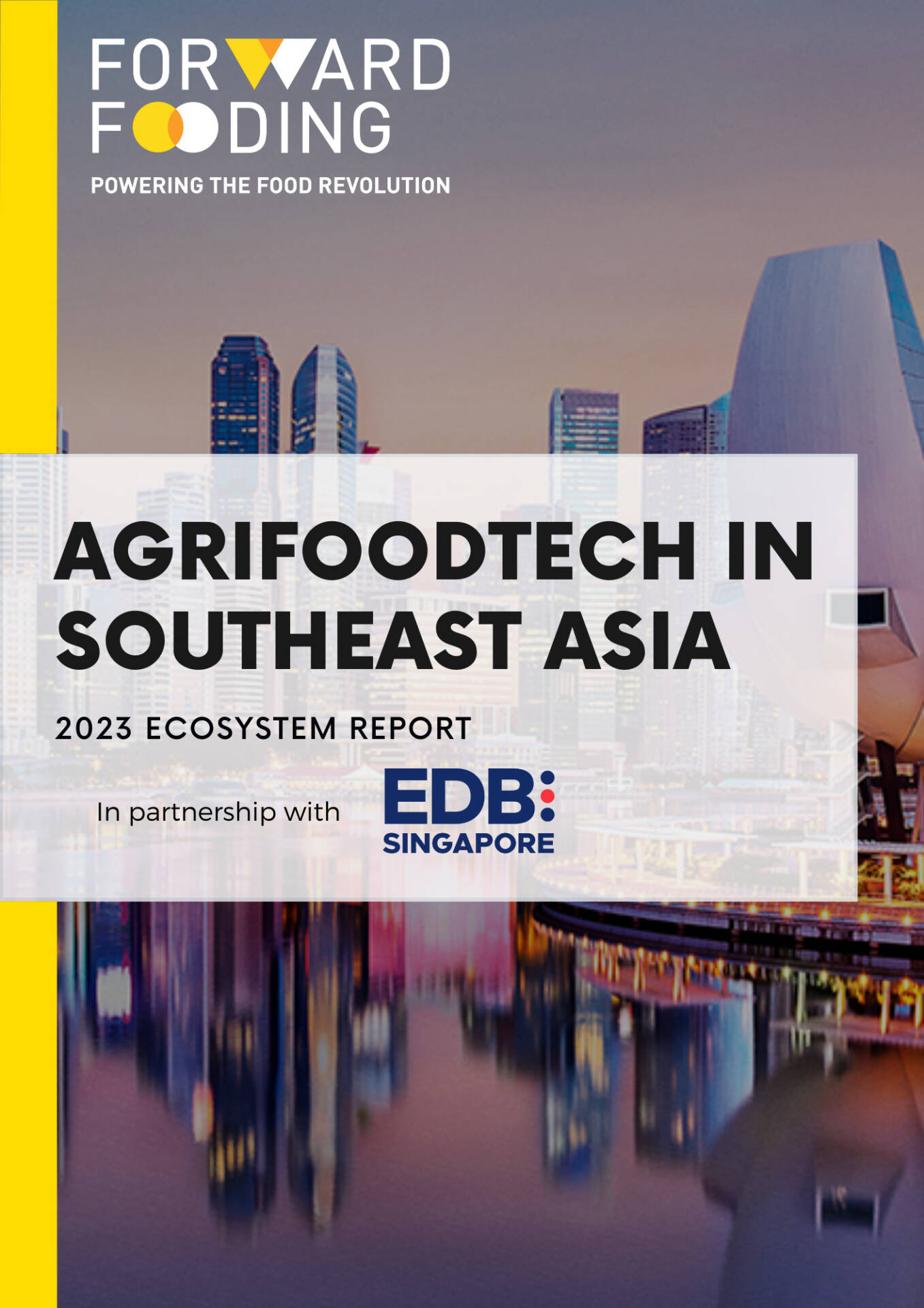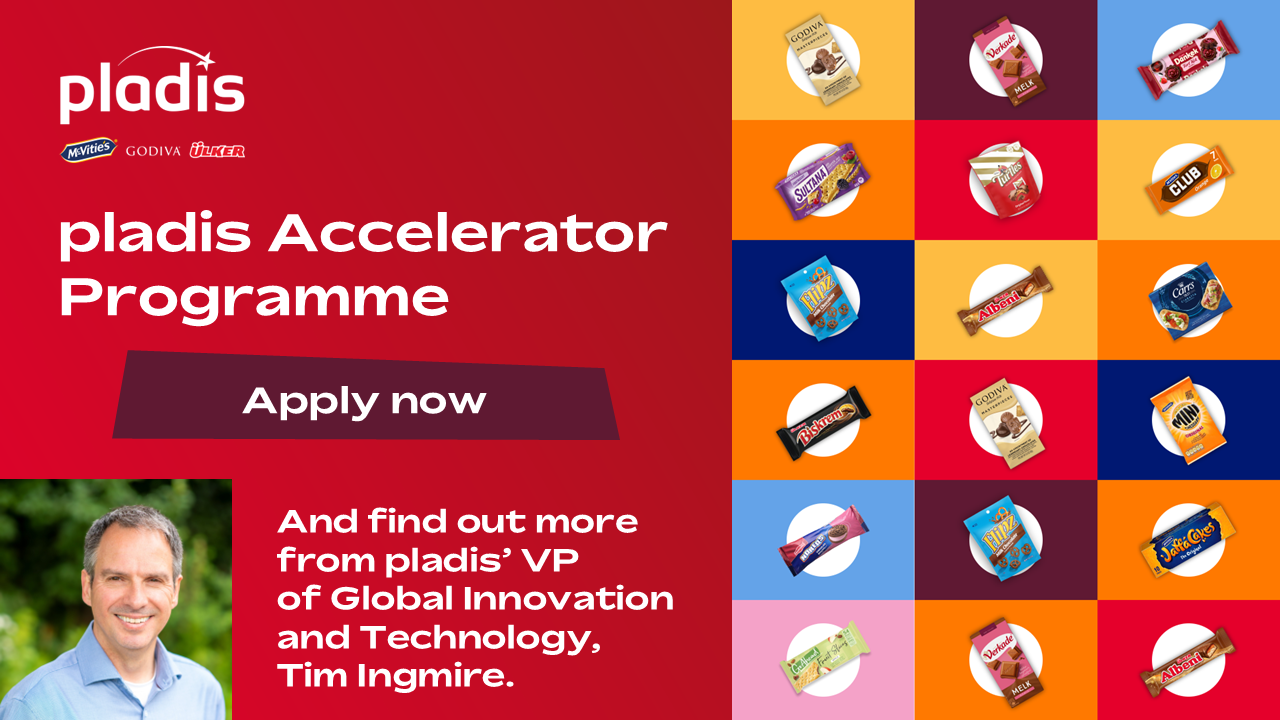FORWARD FOODING
THE BLOG
Why Ownership is Overrated: The Service Model Revolution in Global South Agriculture
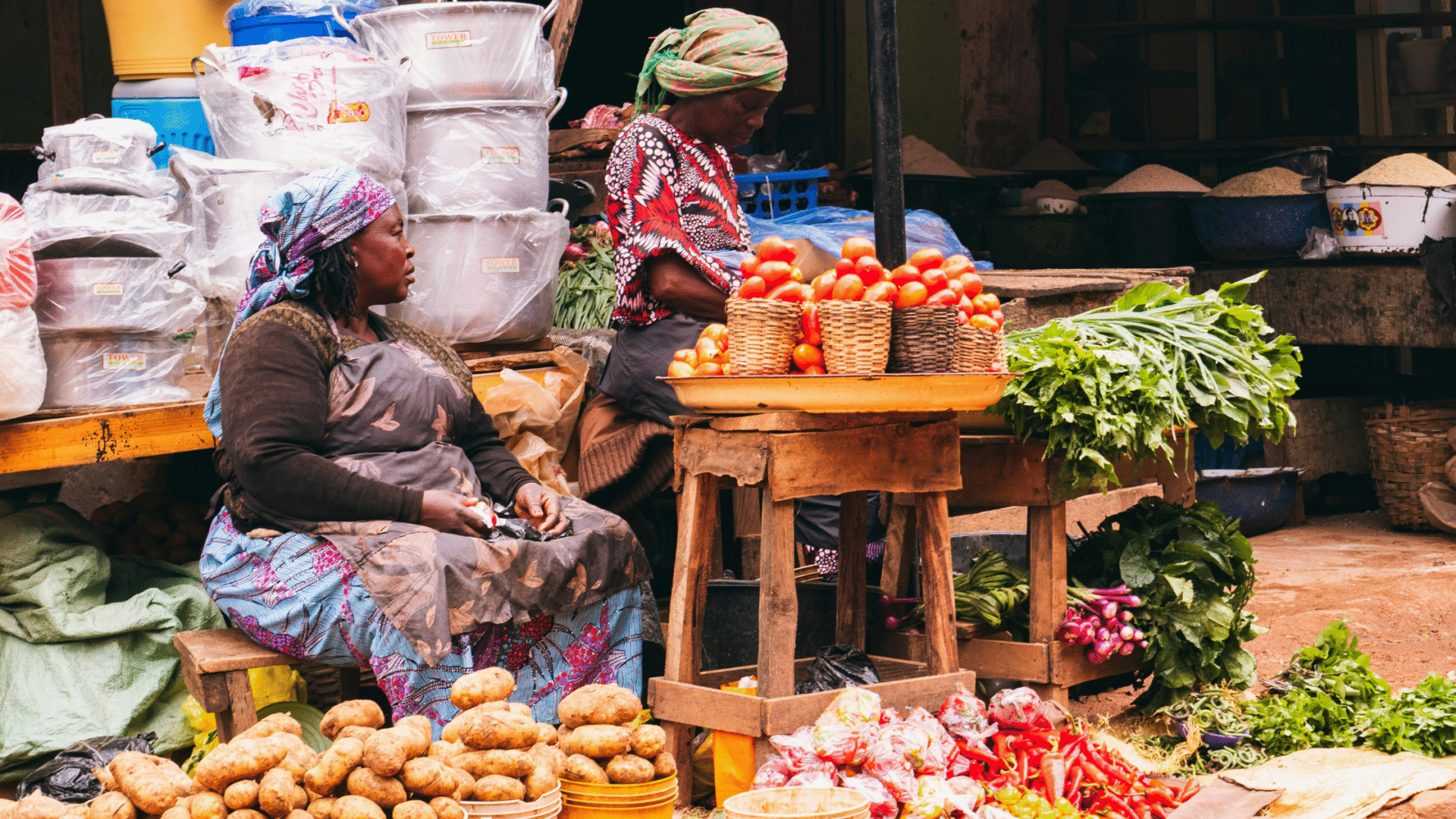
This article is part of “FoodTech Without Borders,” a series of case studies from Ali Sulun that examines AgriFoodTech startups across East Africa, Southeast Asia, and South America—three regions grappling with food insecurity, rapid urbanization, and climate volatility. Through in-depth case studies, the series explores how localized innovations address specific food system challenges while assessing their potential for cross-regional adaptation. By spotlighting emerging solutions that bridge environmental and social impact, “FoodTech Without Borders” seeks to identify scalable models that can contribute to a more resilient and equitable global food system.
This installment examines the rise of Infrastructure-as-a-Service models in Global South agriculture, where shared access is replacing traditional ownership of costly farm equipment. Through case studies of startups like FreshBox and Stable Foods, the series reveals how service-based approaches are making essential agricultural infrastructure more affordable, scalable, and sustainable—with implications that extend far beyond emerging markets.
The Rise of Infrastructure-as-a-Service (IaaS) models in agriculture
When it comes to farming technologies—from irrigation pumps to cold storage—why do we insist on ownership as the default? In the Global South, a quiet revolution is redefining this assumption through Infrastructure-as-a-Service (IaaS) models. Instead of buying expensive equipment outright, farmers access shared, service-based infrastructure that’s more affordable, scalable, and sustainable. And here’s the kicker: these models aren’t just about emerging markets; they’re a blueprint for the future of agriculture everywhere.
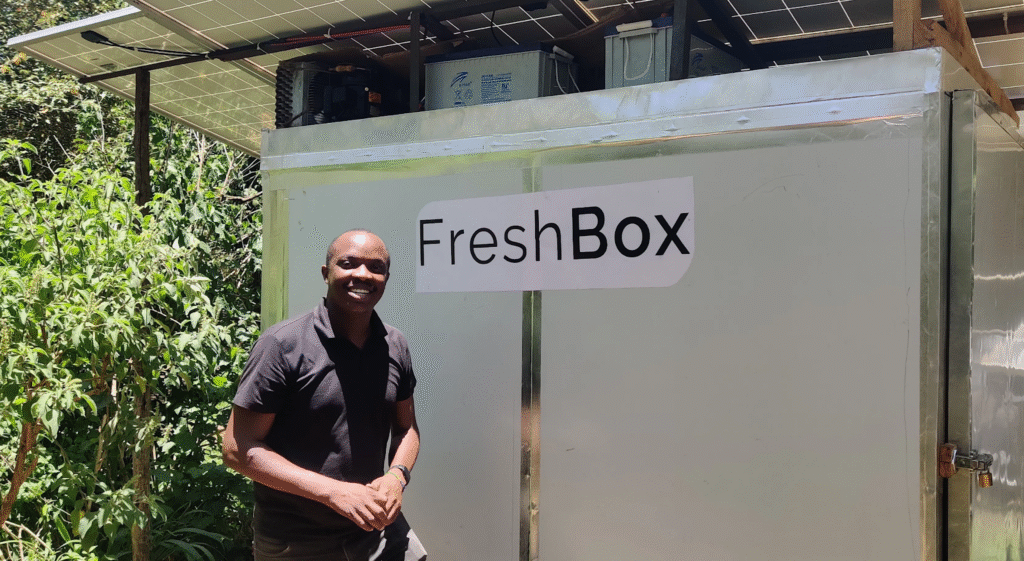
Take FreshBox, a Kenyan startup tackling food waste head-on with solar-powered cold storage units. Instead of requiring farmers to invest thousands upfront for refrigeration—often an impossible sum—FreshBox rents out cold storage space at just $0.70 per crate per day. This simple but powerful service model has saved farmers tons of produce from spoiling, increasing income and food availability. One mushroom vendor, for example, earned an extra $500 in six months thanks to less waste and longer shelf life.
Similarly, Stable Foods reshapes irrigation in western Kenya by offering drip irrigation through a subscription service at $5.25 per month per 18-acre plot. Building and maintaining an individual irrigation system, in contrast, would cost upwards of $2,000—out of reach for most smallholders. Instead, Stable Foods installs shared solar-powered pumps and piped drip lines that serve multiple farms, drastically lowering costs and spreading the benefits. Farmers see 4 to 10 times higher yields and profit growth of up to 480% within a single season.
Democratizing Access and Lowering Risk
What makes these service models so potent? First, they democratize access. Expensive, high-tech equipment that previously only wealthy farmers or large agribusinesses could afford is now within reach for smallholders. Second, they lower risks: farmers aren’t burdened with large one-time purchases or maintenance headaches. Instead, they pay for what they need, when they need it, scaling costs to their capacity.
The environmental benefits are equally compelling. Shared infrastructure means fewer redundant machines, lower energy consumption, and more efficient resource use. For example, FreshBox’s solar-powered units bypass costly diesel generators, cutting emissions and operational costs. Stable Foods’ drip irrigation efficiently delivers water only where necessary, promoting sustainability in water-scarce regions.
From an economic perspective, the “as-a-service” model enables providers to retain ownership and optimize maintenance and upgrades, creating a virtuous cycle of improved performance and customer satisfaction. This setup also allows providers to leverage economies of scale, reducing per-user costs as they grow. Evidence from multiple service delivery models in agriculture shows profitability increases of up to 57% for farmers over years, illustrating how these models create lasting value.
Rethinking the Ownership Model in Western Agriculture
Contrast this with Western agriculture, where ownership remains the norm. Farmers often rely on loans or financing to buy expensive machinery and infrastructure. While convenient, this can saddle them with debt and maintenance burdens, limiting flexibility and adaptability. Moreover, many Western farmers underutilize costly assets during off-seasons, reducing overall efficiency. Infrastructure-as-a-Service offers a flexible alternative, providing access without ownership’s downsides.
The takeaway is clear: the Global South’s embrace of service-based agricultural infrastructure is not just a necessity born of constraints—it’s a strategic innovation fostering resilience, affordability, and inclusive growth. This new paradigm challenges long-held assumptions about how technology should be distributed and who benefits from it.
For investors, corporates, and startups, this is an invitation. Exploring Infrastructure-as-a-Service in agriculture means aligning with models that scale, optimize resources, and unlock new markets. Whether booking a demo on Forward Fooding’s FoodTech Data Navigator or joining the vibrant community events, there are countless opportunities to engage with this transformative shift.
In the end, ownership isn’t always the default answer. Sometimes, sharing and service are what drive true progress—especially in farming, where resources are precious and adaptability is key. The service model revolution is underway, and it’s time to rethink how we support farmers worldwide.
Forward Fooding is the world’s first collaborative platform for the Food & Beverage industry via FoodTech Data Intelligence and Corporate-Startup Collaboration – Learn more about our Consultancy and Scouting Services and our Startup Network.
About the Writers
Ali Sülün is a Research & Data Analyst at Forward Fooding and a student at HAS Green Academy studying International Food & Agribusiness. His thesis research, “FoodTech Without Borders,” profiles AgriFoodTech startups across three continents, examining how region-specific innovations address food security and climate challenges while exploring their potential for global adaptation and impact.
Contributor: Giuseppe Monaco – Research & Data Analyst at Forward Fooding.
Follow us
Sponsored Articles
9 July 2025
Forward Fooding celebrates the selection of 12 pioneering startups for the inaugural pladis Accelerator Programme. From water lily popcorn to sugar-converting enzymes, these innovations represent the future of snacking, addressing obesity, sustainability, and personalized nutrition through cutting-edge food technology.
21 March 2025
Tim Ingmire, VP of Global Innovation & Technology at pladis, discusses how the snacking giant is supporting early-stage startups in foodtech, health, and sustainability through their accelerator program. Learn about their focus on personalized nutrition, functional foods, and future ingredients to bring innovative, delicious products to consumers worldwide.
8 February 2024
Future Food-Tech returns to San Francisco on March 21-22 Over 1,700 food-tech leaders, from CPG brands, retailers, ingredient providers, [...]
1 February 2023
The 4th edition of FoodTech 500 is taking off and we are excited to partner with NEOM for the third consecutive year to support the best international AgriFoodTech entrepreneurs.
10 February 2022
One of the elements we enjoy the most here at Forward Fooding about working with AgriFoodTech startups is being [...]
